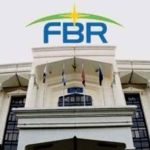The National Bank of Pakistan (NBP) Board of Directors met to discuss the bank’s financial performance and approved the condensed interim financial statements for the three months ending March 31, 2022.
As the most profitable bank, the National Bank of Pakistan has surpassed United Bank Limited and HBL.
As a result, profit after tax for the three-month period was Rs. 9.84 billion, up Rs. 2.1 billion or 27.6% from Rs. 7.7 billion in Q1’21, the highest ever quarterly profit in NBP’s history.
Despite continuing economic problems and uncertainty, the Bank has produced outstanding returns for its stockholders. This illustrates the efficacy of management’s plans, the Bank’s business model’s durability, and our employees’ efforts throughout this time.
NBP earned Rs. 79.2 billion in gross interest income over the three-month period, compared to Rs. 48.5 billion in the same time previous year. The bank’s investment portfolio earned a mark-up/interest income of Rs. 50.4 billion, up from Rs. 27.9 billion in Q1’21 by Rs. 22.5 billion, or 80.8 percent.
The loan book, on the other hand, earned a mark-up revenue of Rs. 26.2 billion, up Rs. 6.5 billion (32.8 percent) from Rs. 19.7 billion in Q1’21. The cost of funds for Q1’22 amounted to Rs. 53.4 billion, up 100 percent from Rs. 26.9 billion in Q1’21, in keeping with the YoY rise in average policy rates. As a result, Net Interest Income for the period under consideration totaled Rs. 25.8 billion, up 19.4 percent from Rs. 21.6 billion in Q1’21.
Non-fund revenue for the quarter was Rs. 8.1 billion, down Rs. 0.4 billion or 4.7 percent year on year, owing mostly to decreased capital gains due to the stock market’s poor performance. NFI is expected to rebound in the future, according to management, as the stock market shows signs of stability with the end of COVID-19 and some political certainty. NBP incurred operational expenditures of Rs. 16.7 billion, up 16.7% from Rs. 14.3 billion in Q1’22, resulting in a Cost-to-Income ratio of 49.4 percent, in accordance with inflationary pressures and industry norms.
Asset quality improved somewhat during this time, with non-performing loans increasing by 3.0% to Rs. 203.9 billion, resulting in a loan infection ratio of 14.7 percent, down from 15.2 percent at the end of 2021 and 16.2 percent on March 31, 2021. The net provision charge for the quarter was just Rs. 1.1 billion, down 65.7 percent or Rs. 2.0 billion from Q1’21’s Rs. 3.1 billion. The coverage ratio was high at 88.3 percent, with Rs. 180.1 billion kept as particular provisions against NPLs.
The Bank’s total assets were Rs. 3,740.9 billion as of March 31, 2022, a 2.7 percent decrease from Rs. 3,846.7 billion as of December 31, 2021. This dip was mostly attributable to a drop in seasonal year-end institutional deposits, which should reverse in the coming quarters. Gross advances totaled Rs. 1,382.7 billion, representing a 5.9% YoY rise, while investments totaled Rs. 1,981.0 billion, representing a 3% YoY growth.
A diverse financing portfolio allows the Bank to maintain robust funding and liquidity levels. Total deposits were Rs. 2,634.5 billion as of March 31, 2022, with customer deposits accounting for 89.1% of total deposits. Liquidity Coverage and Net Stable Funding remained strong at 141 percent and 246 percent, respectively, while the CASA ratio stayed at 83 percent.
Total CAR increased to 21.78 percent and Tier-1 Ratio to 16.40 percent, respectively, from 20.39 percent and 15.42 percent in YE’21, demonstrating financial soundness far above the minimal regulatory criteria. At 3.88 percent, the leverage ratio was reasonable. Break-up value per share climbed to Rs. 140.2 as opposed to Rs. 134.5 at the end of 2021, with net assets of Rs. 298.3 billion, up 4.2 percent from Rs. 286.2 billion at the end of 2021. Both PACRA and VIS Credit Rating Company have confirmed that the Bank has the highest local credit ratings of AAA/A1+ in the long and short term categories.
Previously, the Board of Directors recommended a cash dividend of Rs. 1.0 per share for approval of the audited Annual Financial Statement-2021, subject to approvals from the Federal Government under section 17 of the Banks (Nationalization) Act, 1974, and the State Bank of Pakistan, both of which have yet to be obtained.









